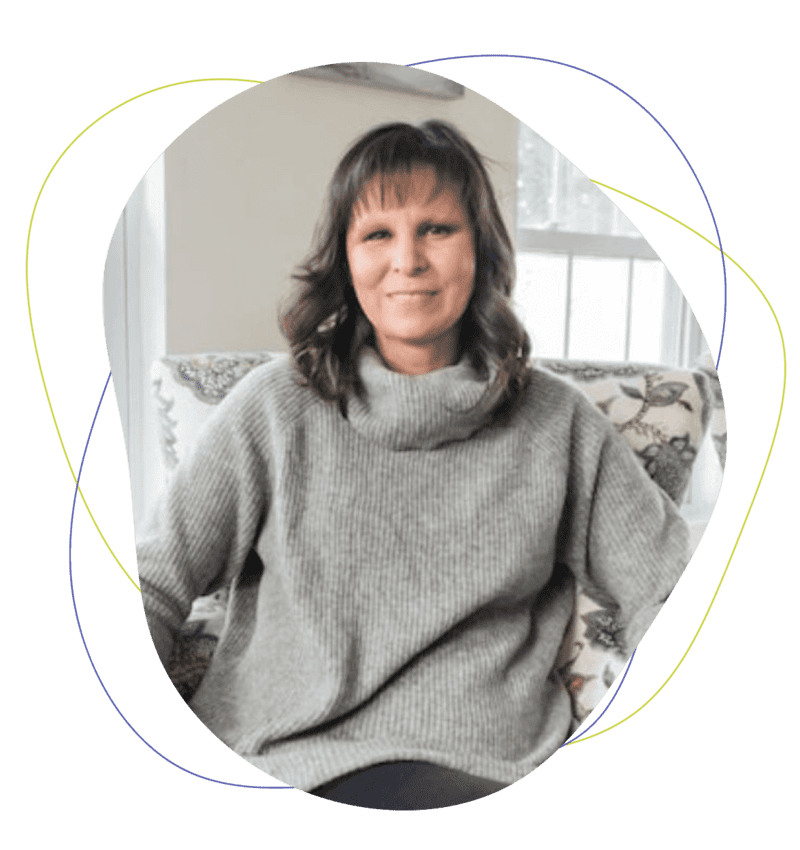
If your thoughts are persistently anxious and fear-based, you probably struggle with a negative inner critic. Maybe you ruminate over small and otherwise inconsequential details, or you constantly worry about being judged by others. As a result, you may avoid social situations or feel debilitatingly self-conscious around others.

Anxiety doesn’t just affect your thoughts and emotions—there are plenty of physical symptoms that make life uncomfortable. Whether you experience muscle tension, stomach and head aches, or light headedness, it’s probably difficult to relax. Not to mention, panic and anxiety attacks manifest in the body, presenting such symptoms as a racing heart, difficulty breathing, and chest pain. And even though you’re drained of energy by the end of a long, stressful day, you likely find it impossible to quiet your mind to fall or stay asleep.
For centuries, women have encountered different stressors, gendered expectations, and more insidious threats than men. Statistically, we as women are more likely to develop anxiety and other obstacles to mental health than our male counterparts. ¹
You may have noticed that you experience anxiety differently than your peers. Maybe you put pressure on yourself to do everything perfectly or feel that you aren’t often allowed to be assertive and problem-solve onyour own. It’s possible that you’ve developed an imposter syndrome—or the sense that you’re not worthy of your accomplishments—which only worsens your inner critic. With your performance and motivation compromised, you may be taking more days off from school and work, convincing yourself that overcoming anxiety is impossible.
Anxiety disorders are the single most prevalent mental health condition in this country, with 1 in 5 adults showing symptoms. ² If you experience anxiety, you are not alone—and it is certainly not your fault.
Anxiety is a biological response to perceived threats, and in many ways, it is a mechanism that has kept our species safe and alert. However, as society has become increasingly fast-paced and driven by success, we as individuals have had to adapt to living in a constant state of stress. Not only do we have to worry about our relationships, work, and financial stability—we also have to grapple with the unpredictable nature of global crises and individual traumas (including loss, grief, and unexpected medical diagnoses). Oftentimes, the stakes feel alarmingly high as we manage the fear of an unforeseen catastrophe in every corner of our lives.


The thing about anxiety is that it can be a reaction to real-world events or imagined perceptions. As feelings of uncertainty and imminent danger are regularly triggered, we become accustomed to a generalized, vague sense of doom and misfortune.
Therapeutic treatment provides a pathway to understanding the core of anxiety and individualized ways of overcoming it. Working with a therapist, you can safely explore and express your emotions to make your daily stress and anxiety more manageable.
When anxiety has infiltrated your life to the point that stress has become chronic, it’s hard to see your worries, fears, and triggers clearly. Counseling at Creative Arts Therapy Source offers an expressive and nonjudgmental environment where you can identify stressors and learn tools for coping with your anxiety.
We are here to help you see how your thought patterns contribute to your symptoms. Using a combination of solution-focused approaches and Art Therapy, we will create and work toward concrete treatment goals while building lifelong resources for managing your anxiety.


FOUNDER & ART THERAPIST
LCAT, LPAT, ATR-BC
WE BELIEVE EVERYONE HAS A UNIQUE STORY AND SOMETIMES, WORDS JUST AREN'T ENOUGH TO TELL IT.



At Creative Arts Therapy Source, art isn’t just an activity; it’s a language that allows you to express your deepest emotions, fears, dreams, and hopes. Your artwork becomes a window that offers a comprehensive view into your pain, experiences, and the hopes you have for the future.
We want therapy to be a joyful, enlightening, and playful exploration where you are free to express yourself in a way that feels right to you. Talk therapy, with the support of art therapy, can help you uncover a new perspective.
We want to help you tell your story







After completing a simple, straightforward intake, we will meet for a first session during which we will identify presenting concerns and go over relevant parts of your history.













We completely understand that right now, you probably feel like your schedule is too packed to add weekly counseling sessions and that the idea of any further obligations only worsens your anxiety. But this concern indicates to us that you’re already drained by stress and worry. Carving out an hour each week to problem-solve and build tools for coping can help every area of your life feel more manageable.
It’s also important to remember that an effective therapist doesn’t want you to be in therapy indefinitely. Instead, therapy should be used as a time-limited opportunity to pause and examine what’s keeping you stuck in an unhealthy, counterproductive cycle. After we’ve built rapport and addressed some of your pressing issues, we can discuss your progress and consider dialing back the frequency of your sessions.
So, the question is: would you rather continue feeling anxious and overwhelmed, or are you willing to make a little time in your schedule for therapy each week so that you can find lasting relief from your anxiety?
We have no doubt that you are an intelligent, resourceful, and successful person. In fact, we’d venture to guess that many people come to you when they are experiencing problems. As such, you may be putting additional pressure on yourself to address your anxiety without help.
But we are here to tell you that going to a therapist for your anxiety will not turn you into a dependent, incapable person. Just the opposite is true, as therapy can empower you to become more independent, confident, and self-assured. Our job as therapists is to help you build your toolbox and strengths, and anxiety treatment is a chance for you to learn how to problem-solve effectively.
It makes sense that you feel uncomfortable sharing your inner thoughts with someone you don’t know. However, we encourage you to consider how it could be beneficial to have the outside perspective of a professional who can help you work through your anxiety in therapeutic treatment. Although friends and family may be impartial when offering support, a therapist can address your anxiety objectively without expectation or bias.
In therapy, you are our client, and we am invested in your healing.
STILL HAVE QUESTIONS?
Our administrative assistant can answer your questions and match you with the best therapist for your needs.
If you have any billing, scheduling or log-in questions or any other inquiry, contact us here.


Offering in-person therapy on Long Island and online therapy across New York and New Jersey.